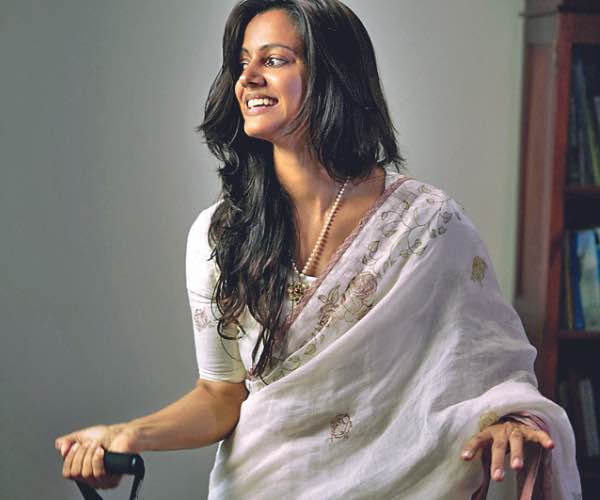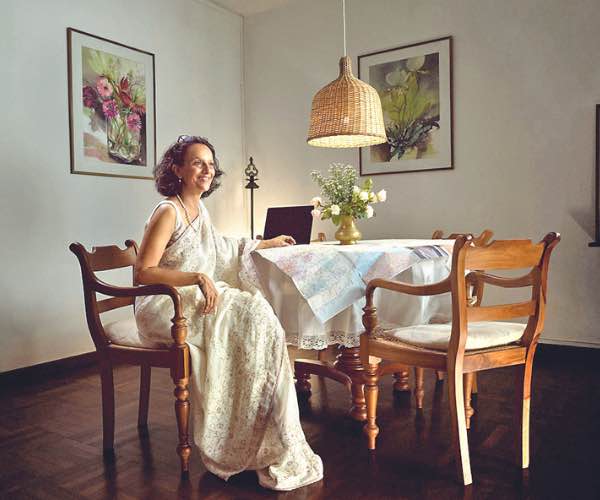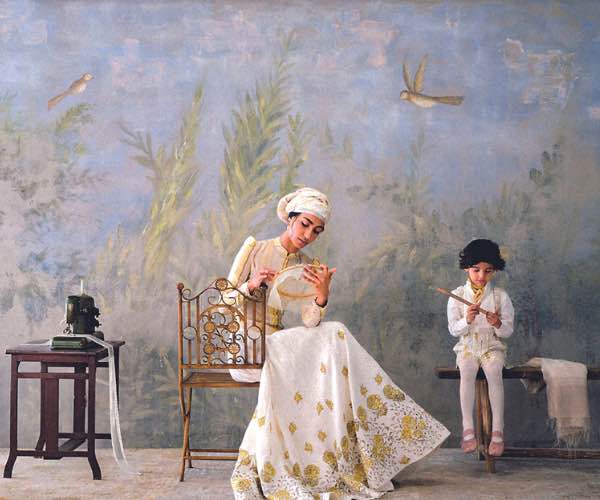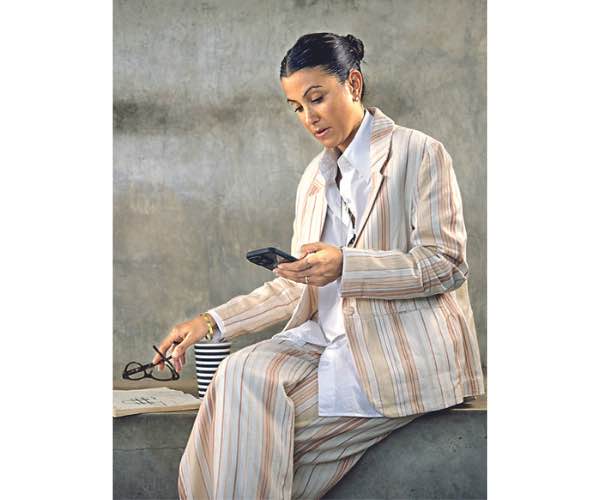
Jun 20 2024.
views 216



Dubbed a love letter to summer, designer Anavila Misra wove her ode to the Franco-Tamil culture of Puducherry in the second of the Textile Talks series at the Rithihi flagship store at Alfred House Gardens recently. Mesmerised by the heady scents and palette of the hues of French influence that mixed effortlessly into the backdrop of Tamil culture when she first visited Puducherry in 1999, Anavila’s ÉTÉ Collection depicts the modernity yet traditionality of the sari drape.
The cross-cultural narrative behind ÉTÉ which transcends geographic boundaries and into the infinity of the ethno-European cultural space has been perfectly encapsulated by Rithihi using Sri Lankan muses of mixed identities to showcase the blend of tradition and modern in the everyday woman. Rithihi captures Marine Researcher Ramani Jayawardena and physiotherapist and Kuppameniya Founder Melanie Daetwyler-De Silva who are both of Swiss-Sri Lankan origin.
In addition, Interior Designer and multi-faceted entrepreneur Annika Fernando who has a Sri Lankan father and mother who were Dutch, Danish and Austrian with a German upbringing realised the relevance of the Anavila story to Sri Lanka. Anchoring the saris on a canvas of white with the rose as the primary motif, Anavila explained the thought process behind the collection to the intimate audience gathered at the store.
“The idea of a summer collection danced in my head for a long time and when I went back to Puducherry 25 years later, I could see that cultural fluidity in the drape of linen saris – the ease, the grace and the elegance which is very much the persona of the South Asian woman. Linen is the perfect celebration of that cross-pollination of cultures that fuse the Tamil and French way of life.”
Each of the saris is an opus; a legacy regaling a story of a passionate experiment blended with indigenous textiles and artisanal skill. With a desire to modernize and deconstruct the age-old sari, ÉTÉ holds within its weaves elements of a garden in full bloom or the minute detailing of a single feature symbolic of a languid summer day. As Ramani mentions, “Garments shouldn’t necessarily represent cultural identity; they can stand alone as statements. The way Anavila drapes saris shows how easily they can be perceived as Western outfits.”
The piece de resistance in the ÉTÉ collection is the ivory khadi silk sari that took a team of applique artisans and hand embroiderers 400 days to complete. The detailing is meticulous, the work exacting and the process surely exhausting, but it is an oeuvre that chronicles the entirety of how artisanal hands weave cultural identity into an ever-evolving newness.
0 Comments